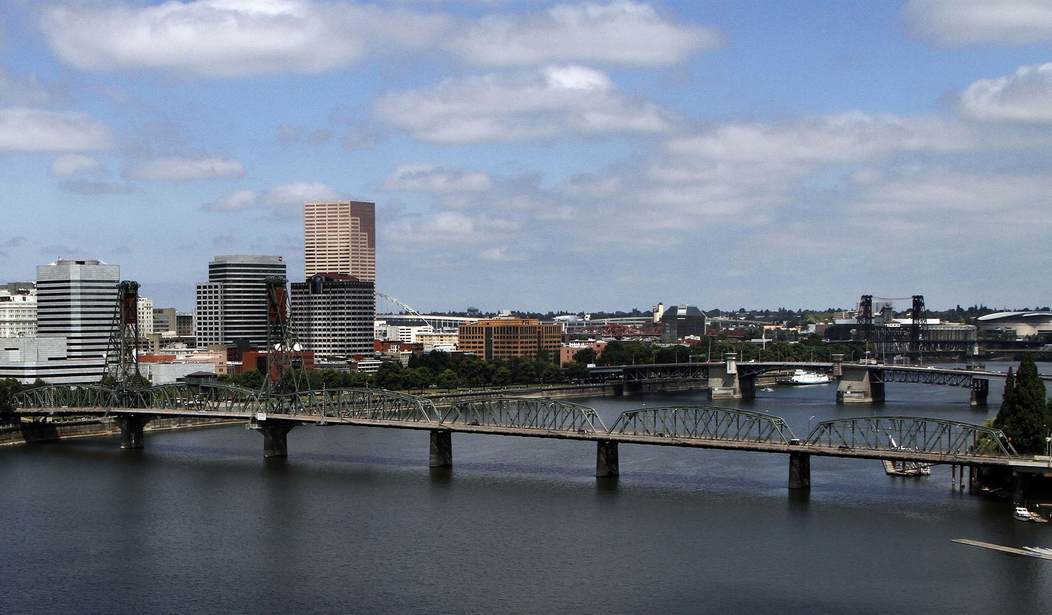Officials in Portland, Ore. recently estimated it will cost $640 million over the next 10 years in order to help adequately prevent homelessness in the area, but a report out this week shows that many citizens from the City of Roses have simply resorted to calling the police on unwanted vagrants. In fact, authorities say that more any other problem, residents are calling the emergency hotline to complain about homeless people even when immediate danger is not present.
Katie Shepherd of the Willamette Week reports that the Portland Police Bureau receives a call from the public on average every 15 minutes per day to complain about an unsheltered person who "frightens or inconveniences them." When lumped together with other calls such as mental health emergencies, police recive calls every 4 minutes for a non-violent issue.
Shepherd gave the following example from a cashier as a typical call 911 dispatchers receive from a variety of businesses:
"One guy," she told the dispatcher, "is over there, he put a tent over there. It's very close to our building. It's almost in front of the door."
"He's just camping out?"
"He put like a tent," the cashier said. "A big tent."
"So, I understand why you wouldn't be comfortable with that," the dispatcher replied. "But is he doing anything else?"
"No," the caller said. "No, no, nothing. But we're losing customers and everybody complains."
"OK, we'll come by in between emergency calls and tell him to leave," the dispatcher told the clerk before hanging up.
Portland police deal with these sorts of calls because they say the public simply does not know who else to call upon and there thousands of homeless people throughout the city.
"We get a lot of administrative-type calls," Bureau of Emergency Communications director Bob Cozzie told WW. "Those kinds of things are certainly not 911 emergencies, but because they don't know what other number to call, they call 911."
This poses a problem for a number of reasons, chief among them the Portland Police have a lack of staff properly equipped to deal with homeless people who often have a mental illness. Advocates say the department needs more funding and training to help solve the crisis.
Recommended
"The Portland Police Bureau has not been given nearly enough resources to fulfill its small piece in addressing the homelessness crisis," police union president Daryl Turner said in a recent statement. "It's a recipe for failure to put the burden of the homelessness solution on the Police Bureau's shoulders and then give us insufficient resources to do the work."
Other public officials encourage folks who are concerned about an individual to call mental health offices in the city which are staffed with proper therapists, psychologists, and other trained professionals. "If people think they should call, they should call [the Mental Health Call Center]," Leticia Sainz, a program manager at the Multnomah County Health Department said "We can get them where they need to be."
Portland Commissioner Joanne Hardesty is implementing reform by having a medic and a counselor attend these 911 calls when it is apparent a problem is simply a homeless person.
"Police are not the best first responders for behavioral health issues," Hardesty told WW. "Our outcomes in Portland have shown that time and again. What we've found beginning to research alternatives is that sending crisis counselors coupled with a medic partner can be a more cost effective as well as a safer response."
The root of this issue is an increasing homeless population in the area. Portland has the second highest homelessness population in the entire country. The city has spent millions of dollars to try and deter homeless individuals and help others get back on their feet, but so far all methods have been unsuccessful. One example of a good-intentioned plan gone awry was the disastrous no-turn-away shelter program. The plan cost Portland millions, stretched resources, and ended up placing hundreds of families in motels. As noted by the Seattle Times, Portland officials tried establishing shelters for homeless families that had to accept everybody, but the "experiment showed that the best alternative is keeping someone from entering shelter in the first place." The program ended in 2018 though many places are still full.
In the short term, authorities now hope that by providing mental health resources, police can respond to other calls and avoid escalating situations which could result in somebody killed.
























Join the conversation as a VIP Member